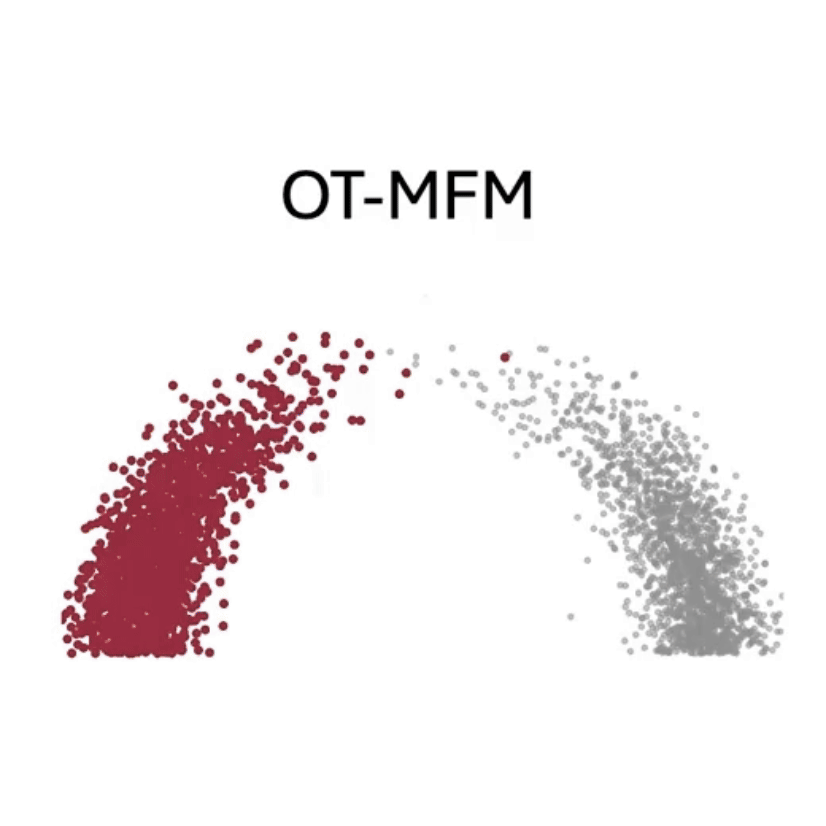Publications
2024
-
 Linear Convergence of Diffusion Models Under the Manifold HypothesisPeter Potaptchik, Iskander Azangulov, and George DeligiannidisPreprint, 2024
Linear Convergence of Diffusion Models Under the Manifold HypothesisPeter Potaptchik, Iskander Azangulov, and George DeligiannidisPreprint, 2024Our work explains why sampling from ImageNet needs only 100 steps instead of 150k!
Diffusion models have proven to be state-of-the-art for sampling from complex high-dimensional data distributions, e.g., audio, images, molecules, text and videos. An important question is to determine their iteration complexity, meaning the number of steps diffusion models require to converge. Prior work has shown that this complexity is linear in the extrinsic data dimension D. However, the distribution of interest often has much lower d-dimensional structure, as suggested by the manifold hypothesis. We take the best of both worlds and show that the number of steps required is linear in the intrinsic dimension d. -
 Metric Flow Matching for Smooth Interpolations on the Data ManifoldKacper Kapusniak, Peter Potaptchik, Teodora Reu, and 5 more authorsNeurIPS, 2024
Metric Flow Matching for Smooth Interpolations on the Data ManifoldKacper Kapusniak, Peter Potaptchik, Teodora Reu, and 5 more authorsNeurIPS, 2024Matching objectives underpin the success of modern generative models and rely on constructing conditional paths that transform a source distribution into a target distribution. Despite being a fundamental building block, conditional paths have been designed principally under the assumption of Euclidean geometry, resulting in straight interpolations. However, this can be particularly restrictive for tasks such as trajectory inference, where straight paths might lie outside the data manifold, thus failing to capture the underlying dynamics giving rise to the observed marginals. In this paper, we propose
METRIC FLOW MATCHING (MFM) , a novel simulationfree framework for conditional flow matching where interpolants are approximate geodesics learned by minimizing the kinetic energy of a data-induced Riemannian metric. This way, the generative model matches vector fields on the data manifold, which corresponds to lower uncertainty and more meaningful interpolations. We prescribe general metrics to instantiate MFM, independent of the task, and test it on a suite of challenging problems including LiDAR navigation, unpaired image translation, and modeling cellular dynamics. We observe that MFM outperforms the Euclidean baselines, particularly achieving SOTA on single-cell trajectory prediction.
2023
- DFNde Finetti’s theorem and the existence of regular conditional distributions and strong laws on exchangeable algebrasPeter Potaptchik, Daniel M. Roy, and David SchrittesserPreprint, 2023
We show the following generalizations of the de Finetti–Hewitt–Savage theorem: Given an exchangeable sequence of random elements, the sequence is conditionally i.i.d. if and only if each random element admits a regular conditional distribution given the exchangeable σ-algebra (equivalently, the shift invariant or the tail algebra). We use this result, which holds without any regularity or technical conditions, to demonstrate that any exchangeable sequence of random elements whose common distribution is Radon is conditional i.i.d.